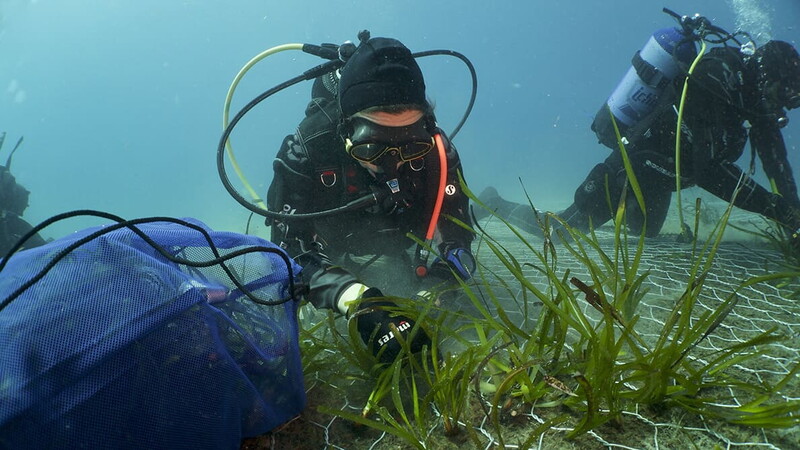Protecting and regenerating natural ecosystems isn't just an ethical concern, but rather a concrete necessity for combining industrial competitiveness with environmental sustainability. This is precisely why Pirelli is supporting the Blue Forest project, an initiative developed by the One Ocean Foundation in partnership with the University of Sassari. It's the most extensive marine reforestation initiative in the Mediterranean Sea, focused on protecting and restoring Posidonia oceanica. This plant is endemic to our waters and fundamental for the health of the marine ecosystem.

Posidonia oceanica (commonly known as Neptune grass) is a true ally against climate change: it produces oxygen, protects coastlines from erosion, and absorbs large quantities of CO₂. Moreover, its presence is a direct indicator of healthy seas. In an inspiring move for marine conservation, Pirelli has already funded the reforestation of 300 square metres of seabed in Cala di Volpe, Sardinia. This vital area was identified through scientific research by the Sardinian university, and the reforestation efforts are set to expand even further by 2026.
Pirelli's commitment to supporting the "Blue Forest" initiative is a deliberate one. As Filippo Bettini, Pirelli's Senior Advisor for Sustainability, emphasises, “We are guests on this planet, and as such, we have a duty not only to protect nature but to actively contribute to its regeneration, wherever our activities are located.” This global vision is exactly what drives the company's environmental strategy: their dedication to environmental protection extends far beyond their production facilities, encompassing their entire value chain.

This initiative, spearheaded by the One Ocean Foundation and officially unveiled during Ocean Week 2025, perfectly embodies Pirelli's approach to sustainable development: it must be concrete, measurable, and grounded in scientific evidence. This pioneering initiative is built upon the historic alliance between Pirelli and the One Ocean Foundation, an alliance forged from shared values and a common goal: to champion industrial models that not only minimise environmental impact but actively regenerate natural capital.
Pirelli's involvement in the Blue Forest project is therefore part of a much broader vision: for Pirelli, protecting nature is a cornerstone of its sustainability strategy. As Bettini further explains, “The loss of biodiversity isn't a theoretical risk; it threatens fundamental resources like water, clean air, soil fertility, and climate stability”. This understanding fuels their commitment to developing operational tools, such as the Biodiversity Action Plan, which has been implemented across all their facilities to monitor and mitigate local environmental impacts.

This comprehensive plan includes concrete measures: from optimising water usage and reducing emissions to creating green spaces, planting native species, and promoting urban bee-keeping. All these actions are inspired by the most rigorous international standards, including those proposed by IPBES (Intergovernmental Science-Policy Platform on Biodiversity and Ecosystem Services) and LEAP (Livestock Environmental Assessment and Performance Partnership).
As demonstrated by the Blue Forest project, Pirelli's commitment extends far beyond its own operational boundaries. Their dedication to biodiversity also encompasses their supply chain, with a particular focus on natural rubber - a crucial raw material for the company. In line with this philosophy, Pirelli has implemented a Sustainable Natural Rubber Purchasing Policy. Developed in collaboration with NGOs, suppliers, and customers, this policy led Pirelli to become the first—and currently only—company in 2021 to produce tyres with FSC® certified natural rubber. This certification underscores their commitment to responsible forest management and the well-being of local communities.

For Pirelli, investing in biodiversity is also a strategic decision: As Bettini concludes, “Our stakeholders—from customers to investors to employees—expect authentic engagement that integrates respect for the environment into value creation”. The Blue Forest project, with its scientific approach and regenerative vision, is the clearest evidence of this: responsible industry isn't just possible, it's increasingly essential.





